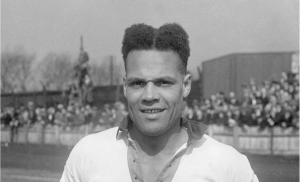This year, our celebration shines additional light on #Luton Black achievement in social, sport or community engagements that we followed all year round.
We welcome one of the longest-standing Luton Town Councillors, Jacqui Bennett, the first black footballer to play for Luton Town FC, Eddie Harris, Montell Neufville, who is championing training for young people and Alva Wilson, the London-born, who is one of Luton’s best-known milliners.
As we move into a post-pandemic world, rocked by protests and racial inequality, The question remains as to what we as a society are doing in terms of leveling up black unsung heroes in Luton and Bedfordshire?
This collection of black achievers is not complete but most significantly, reflects on the perspective in order to raise public awareness of racial disadvantage.
All manner of companies and organisations across all sectors pledged to make real changes in employment practices, service delivery, and the education of our children and young people. This year, we are focusing on our community, #Luton.
Portrait of Eddie Harris, First black footballer to play for Luton Town
 Source: Stock-Image
Source: Stock-Image
Eddie Harris was born in 1911 in Pwllmeyric, Chepstow in Wales, to a white mother, Annie Alford (Clarke) from Leicester, England and a black father, John Edward Parris who was born in Barbados then moved to England in 1900.
At the age of 16, Eddie Parris played for Chepstow Town F.C and was spotted by Bradford Park Avenue A.F.C. He played his first professional game with Bradford in 1929 in the FA Cup against Hull City.
In 1931, he played his first international game with Wales and became the first black footballer to play for Wales.
In 1932, The Daily Mail, described him as ‘…a speedy, when he has the ball, …and is not a little football genius’. Eddie Parris suffered an injury in 1934 while playing for Bournemouth. But later recovered then signed for Luton Town FC. He became Luton Town FC’s first black professional footballer.
He died in February 1971, and in April 2021, he got the recognition he deserves by a commemorative plaque at the house near Chepstow where he was born.
 Source: Football’s Black Pioneers
Source: Football’s Black Pioneers